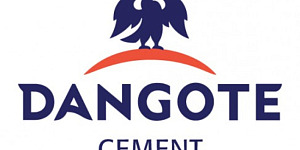Africa is starting to catch up to the rest of the world in terms of economic growth. In particular, industries like real estate, mining, and information technology are witnessing high levels of investment in countries like South Africa. In other parts of Africa, we can see how Nigeria's financial sector has grown exponentially through interest in cryptocurrency and forex trading.
Both cryptocurrencies and forex trading have gained the most momentum, mainly due to increased mobile penetration in the country and interest from Nigeria’s youth population (Africa has the youngest population in the world). With that said, forex trading remains more widespread than cryptocurrency trading as the Nigerian government has conflicting views on virtual currencies. In February 2021, the Nigerian government halted banks from enabling cryptocurrency transactions in the country.
Forex Trading In Nigeria
According to a 2021 report, there are roughly 300,000 retail forex traders in Nigeria, and there has been a substantial rise (46%) in female traders over the past couple of years. For perspective, the forex exchange is the world’s largest financial market, and forex trading involves converting one national currency into another. The most common currency pairs in forex trading include GBP/USD (British Pound/U.S. Dollar) and EUR/USD (Euro/U.S. Dollar). In Nigeria, the most common currency to trade with is the USD, which, according to reports, accounts for around 90% of Nigeria’s forex activity.

Source: Pixabay
There are various types of forex markets, including the swap market, but the most important are the spot market, the forwards market, and the futures market. The spot market is the largest forex market, surpassing the futures market, which is now primarily used by companies trading with forex contract agreements. Even though forex trading has seen considerable recent growth in Nigeria due to mobile penetration and the ability to trade national currencies through mobile applications, the African country has had a long interest in forex dating back to the 1970s.
Nigeria is a producer of crude oil, which is sold in dollars. When prices increased in the 1970s, Nigeria saw a nice economic boost. That price increase led to a growing interest in Africa in trading in dollars; this interest has remained at the forefront of Nigeria’s financial sector ever since. That is evident when we examine the number of forex trading accounts opened since 2020. According to reports, forex trading has seen a roughly 300% growth since March 2020. The majority of traders’ accounts (60%) are from Africa, Southeast Asia, and Eastern Europe.
What Does The Future Hold?
Continued growth in forex trading in Nigeria will come down to technological innovation and further mobile usage and accessibility. However, the future of forex trading is never a guarantee. Like most marketplaces, several factors can influence movement on the exchange. Forex traders should watch the following indicators when making monetary decisions: unemployment rate, GDP growth, overnight interest rate, the consumer price index, and retail sales.
The Western world is becoming far more aware of Nigeria’s interest and growth in forex trading. However, many might not realize why this upward trend is occurring and how it has been a staple in the country’s financial sector since the 1970s.
























































